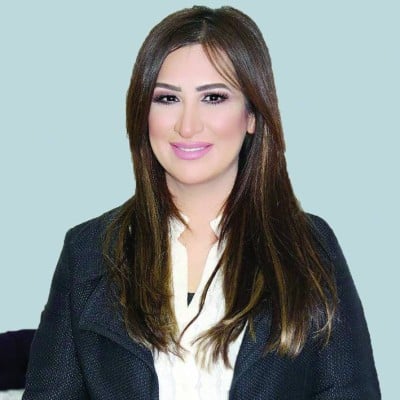CARM Stem and Gene Division Director Jeong Mi-hyeon
[메디게이트뉴스 이지원 기자] 100 days before the implementation of the amendment to the Advanced Regenerative Bio Act, a suggestion was made that it is necessary to establish a system to link advanced regenerative medicine data and advanced biopharmaceutical development to strengthen the effectiveness of the system.
Experts from the medical and pharmaceutical industries gathered at the 5th Advanced Regenerative Medicine Development Strategy Forum held at COEX in Seoul on the 13th to discuss the institutional support and development tasks of the Advanced Regenerative Bio Act under the theme of ‘Implementation of the Amendment to the Advanced Regenerative Bio Act D-100’. did it
The Advanced Regenerative Bio Act was enacted in 2020 to open the way to treating incurable and rare diseases through advanced biopharmaceuticals such as cell therapy and gene therapy. However, it was pointed out as a limitation that it can only be used for research purposes in patients with severe or rare incurable diseases and that treatment costs cannot be charged.
Accordingly, the National Assembly passed the amendment in February of this year. The main contents of the amendment are ▲expansion of the scope of advanced regenerative medicine clinical research and permission for advanced regenerative medicine treatment ▲prerequisites for deliberation of advanced regenerative medicine treatment plans and clinical research ▲relaxation of the standards for licensing of management businesses such as human cells ▲criteria for forming a review committee.
Although there are 100 days left before the implementation of the revised bill, it has been pointed out that the implementation of advanced regenerative medicine, the development of advanced biopharmaceuticals, the interconnection system, and securing experts for each disease are still insufficient.
Accordingly, Mi-Hyeon Jeong, head of the CARM Stem and Gene Division, proposed the establishment of ▲ an interconnection system between the implementation of advanced regenerative medicine and the development of advanced biopharmaceuticals ▲ standards and management measures for the implementation of advanced regenerative medicine ▲ standards for the cost of advanced regenerative medicine treatment.
Director Jeong pointed out the situation in which data on advanced regenerative medicine, in which national resources are being invested, cannot be used for relay research in the development of advanced biopharmaceuticals. He then pointed out that the development of advanced biopharmaceuticals was halted because the results of clinical trials whose development was delayed for reasons such as economic feasibility could not be used as evidence for advanced regenerative medicine treatment.
Director Jeong said, “It is necessary to establish a legal basis for a system that can recognize the results of advanced regenerative clinical research as review data for advanced biopharmaceuticals, as well as a legal basis to recognize clinical trials of advanced biopharmaceuticals for advanced regenerative treatments.” “This will provide patients with the right to receive a variety of safe, high-quality treatments and lay the foundation for the successful development of advanced biopharmaceuticals,” he said.
In addition, he added that through a virtuous cycle of development and investment, we can expect to develop hospital treatment and research technology, and further secure product competitiveness in the industry.
Director Jeong mentioned that it is necessary to establish specific standards, such as securing disease-specific experts to review clinical research plans and inspection results, and expert qualification conditions to maintain consistent quality of human cells.
Director Jeong said, “Due to the revision, the number of subjects to be reviewed has increased. Accordingly, the size of the expert committee and review committee has been expanded, and in preparation for the review of advanced regenerative medicine treatment plans, in addition to safety and effectiveness, it is necessary to review not only safety and efficacy, but also suitability for treatment subjects and appropriateness of treatment costs. He emphasized, “The amendment includes the clause,” and added, “The most important thing is how to manage the quality of the treatment.”
Lastly, Director Jeong pointed out the absence of a standard principle for calculating treatment costs in the subordinate legislation (draft) and explained that additional labor costs are incurred for work related to progress and safety information reporting in addition to medical and surgical costs.
Director Jeong said, “We propose to establish standards for cost settlement related to regular safety reports, etc. and standards that include research and development costs in addition to manufacturing costs,” adding, “We will provide patients with the right to a stable supply of high-quality treatments, and provide patients with the right to a stable supply of high-quality treatments. “We will be able to create an innovative ecosystem for sustainable advanced regenerative medical treatments by providing compensation,” he said.
(From left) CARM Stem and Gene Division Director Jeong Mi-hyeon, Ministry of Health and Welfare Regenerative Medicine Policy Director Jeong Sun-gil, Bundang CHA Hospital Professor Kim Min-young, Kang Stem Biotech Director Yoon Yeon-sil, and Choi Woo-joo, CEO of the Pediatric Rare and Incurable Eye Disease Association.
In the panel discussion that followed, experts from the government, medical community, and industry discussed strengthening the effectiveness of the system.
CARM Policy Committee Chairman Yoon Chae-ok, who served as the moderator, emphasized, “Discussions on advanced regenerative biotechnology should not end with just words. We need to prepare specific policies to revitalize the industry and further provide real benefits to patients.”
Chairman Yoon then said, “If effective laws are not enacted, a significant number of negative procedures may occur,” adding, “This will ultimately result in losses for the people. Clear standards, such as the establishment of CMC (production process and quality management), must be established for healthy industrial development and growth.” “I hope it happens,” he added.
Jeong Soon-gil, Director of the Regenerative Medicine Policy Department at the Ministry of Health and Welfare, said, “Advanced regenerative medicine has special characteristics that are different from general medicines and medical technologies, so institutional improvement is needed to reflect this,” adding, “The law was created to accommodate this special nature. However, at first, research was conducted. “I started with only half of the assumptions, but now that we have a treatment area, we are expanding the area and upgrading the technology,” he recalled.
Manager Jeong said, “Under the current law, there is a selection condition for clinical research. There are opinions on whether to expand the interpretation of this to clinical trials. However, from the government’s perspective, since it is a part of enforcing the law, the law needs to be revised first.” He mentioned.
Manager Jeong said, “There will be many opinions in the discussion on revising the law, but we will try to express opinions in a balanced way.” He added, “As the target diseases expand, there were also opinions on whether to strengthen the expertise of the review committee. This will also happen when the law is revised. “We will be able to discuss the expert committee under the deliberation committee,” he said.
Regarding securing clinical expertise, Professor Kim Min-young of Cha Bundang Medical Center said, “Although doctors are formed on the review committee, there are concerns about whether it can cover all diseases. To make this possible, many clinicians must be formed on the review committee. However, “It is realistically difficult,” he said, suggesting the use of expert groups such as the Korean Medical Association.
Professor Kim added, “It would be good to sign an MOU with the Korean Medical Association and apply a deliberation system by forming experts with high insight under the umbrella.”
The position is that through the MOU, we must secure doctors with expertise in handling various diseases and create an environment that enables quick decisions and safe treatment by participating in the deliberation process.
Director Yeon-sil Kang of Stem Biotech emphasized the practical difficulties of the industry. Director Yoo emphasized, “The industry has limited resources and needs a lot of support to respond to law changes.”

